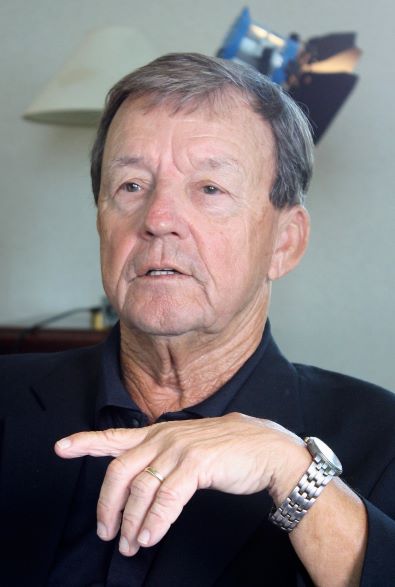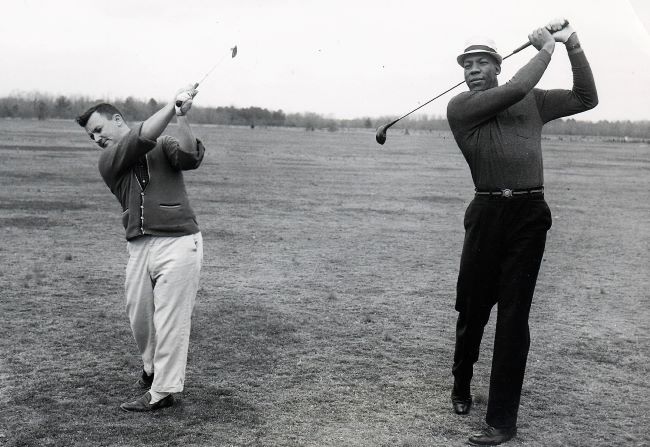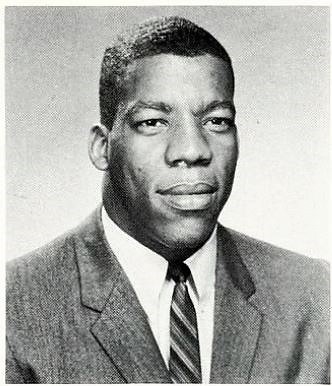
Fred Engh and Bob Taylor were an improbable pair of student-athletes at Maryland State College in the early 1960s.
Taylor grew up in Columbia, S.C., where a Confederate flag flew prominently in a place of honor on the grounds of the state capitol from 1961 until 2015. He was a tall, strapping athlete who matriculated to Princess Anne to study construction management and play football, which he did with flair.
Engh, who is from Ocean City, Md., was much shorter in stature than Taylor and scrappy. He attended Mercersburg (Pa.) Academy, an all-white prep school at the time, where he was captain of the wrestling team.
Together at Maryland State, they formed a formidable twosome on a championship golf team in an era when the game and its venues were among the staunchest hold-outs of segregation in the world of sports.
Taylor, who played professional football briefly in the mid-1960s, died in 2006. Engh earned a teaching degree in 1963 but found his calling in recreational sports that led him in 1981 to form the National Alliance for Youth Sports.
A leading advocate of promoting the power of organized sports for children, Engh points to his experiences as an undergraduate at a historically black institution as shaping his views of work and life.
“It helped me see no color, and the good in people,” Engh said.
Raised in an ocean-side resort, Engh remembers blacks working in low-paying service industry jobs and being chased off the beach by police.
After briefly attending the University of Maryland in College Park, where he aspired to continue wrestling, Engh returned to the Eastern Shore determined to finish his college studies and support his young family.
Engh enrolled in Maryland State, where he said he was immediately “well-accepted … and contrary to all those awful stereotype perceptions of the day, the people were highly intelligent.”
“It was an awakening for me to understand that what I was taught was a complete, total myth,” he said.
Engh took an algebra class from a young professor, William P. Hytche. Math was not Engh’s best subject. “He was such a great teacher,” Engh said, “I ended up getting an ‘A.’”
Hytche, of course, became a legendary educator at Maryland State and eventually its president.
As he traveled with and played alongside his teammates, Engh witnessed the prejudice blacks systematically endured as the nation struggled to embrace integration and civil rights.

While practicing at a golf course one day, a ball landed in a sand trap. An employee who had been shadowing the team, Engh recalled, condescendingly admonished Taylor as he approached his next shot: “Boy, around here we rake the bunker.”
“It was very insulting,” Engh said. “We just walked away.”
“The next shot, Bob says to me, ‘Fred, now you know what it’s like to grow up black’.”
Maryland State golfers packed meals when they traveled to play other teams because they wanted to avoid confrontations at eateries that might balk at serving them.

It was during these trips Engh realized the power of competition, and marked the beginning of a life-long commitment to using sports to make a difference in young lives.
As an undergraduate, Engh remembers “sitting around and talking about the opportunities we had, the dreams we had … I’ll never forget Bob (Taylor) said: ‘None of this makes a difference, black or white… we’re all going to be gray.’ He wasn’t far off.”
Engh founded the National Alliance for Youth Sports to help volunteer coaches understand their roles and responsibilities to children. Considered one of the most widely used volunteer-coach training programs in the world, the Alliance has trained nearly three million coaches and is expanding to include parents, administrators and officials.
Another of his initiatives is “Hook A Kid On Golf,” which since 1990 has introduced golf to more than 75,000 youngsters around the world and provides them opportunities to continue playing in fun and innovative formats. The cable TV network, The Golf Channel, produced a profile on Engh for its “Golf In America” series and included the story of how his decision to attend Maryland State shaped his life’s work.
In 2003, Engh formed the International Alliance for Youth Sports to offer sports programs to children in under-developed nations. It routinely partners with the Peace Corps.
He also started the Global Gear Drive in 2004, which collects new and used sports equipment throughout the U.S. and distributes it to children in poverty-stricken and AIDS-ravaged regions of the world so they too can benefit from sports participation.
Engh described his college experience as “life-changing. It was an awakening. It gave me an opportunity to get a degree, and to go on to do everything I’ve done in my life.”
UMES gratefully acknowledges the National Alliance for Youth Sports’ contribution of background to this article.

